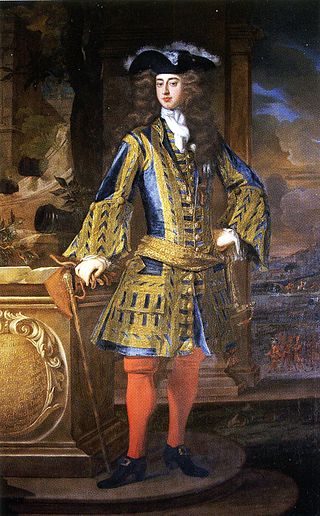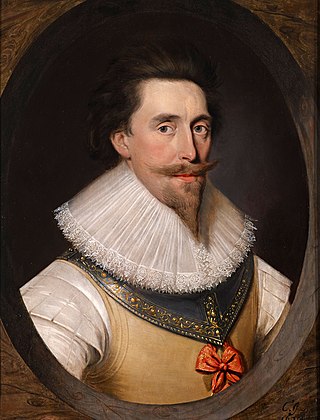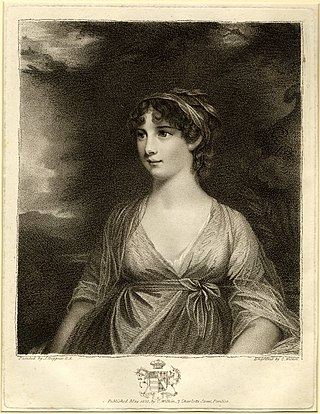
Charles Manners-Sutton was a bishop in the Church of England who served as Archbishop of Canterbury from 1805 to 1828.

Duke of Rutland is a title in the Peerage of England, named after Rutland, a county in the East Midlands of England. Earldoms named after Rutland have been created three times; the ninth earl of the third creation was made duke in 1703, in whose family's line the title continues. The heir apparent to the dukedom has the privilege of using the courtesy title of Marquess of Granby.

Charles Manners-Sutton, 1st Viscount Canterbury, was a British Tory politician who served as Speaker of the House of Commons from 1817 to 1835.
The Peerage of the United Kingdom is one of the five Peerages in the United Kingdom. It comprises most peerages created in the United Kingdom of Great Britain and Ireland after the Acts of Union in 1801, when it replaced the Peerage of Great Britain. New peers continued to be created in the Peerage of Ireland until 1898

Baron de Ros of Helmsley is the premier baron in the Peerage of England, created in 1288/89 for William de Ros, with precedence to 24 December 1264. Premier baron is a designation and status awarded to the holder of the most ancient extant barony of the Peerage of England. Before the Dissolution of the Monasteries the Prior of the Order of St John in England was deemed the premier baron.

Marquess of Exeter is a title that has been created twice, once in the peerage of England and once in the peerage of the United Kingdom. The first creation came in the peerage of England in 1525 for Henry Courtenay, 2nd Earl of Devon. For more information on this creation, which was forfeited in 1538, see Earl of Devon.

Earl of Jersey, is a title in the Peerage of England. It is held by a branch of the Villiers family, which since 1819 has been the Child Villiers family.

Earl of Lonsdale is a title that has been created twice in British history, firstly in the Peerage of Great Britain in 1784, and then in the Peerage of the United Kingdom in 1807, both times for members of the Lowther family.

Earl of Eldon, in the County Palatine of Durham, is a title in the Peerage of the United Kingdom. It was created in 1821 for the lawyer and politician John Scott, 1st Baron Eldon, Lord Chancellor from 1801 to 1806 and again from 1807 to 1827. He had already been created Baron Eldon, of Eldon in the County Palatine of Durham, in the Peerage of Great Britain in 1799, and was made Viscount Encombe, of Encombe in the County of Dorset, at the same time was given the earldom. His grandson, the second Earl, briefly represented Truro in the House of Commons.

Earl of Strafford is a title that has been created three times in English and British history.

Baron Ellenborough, of Ellenborough in the County of Cumberland, is a title in the Peerage of the United Kingdom. It was created on 19 April 1802 for the lawyer, judge and politician Sir Edward Law, Lord Chief Justice of the King's Bench from 1802 to 1818. His son, the second Baron, notably served as Governor-General of India. On 22 October 1844 the second Baron was created Viscount Southam, of Southam in the County of Gloucester, and Earl of Ellenborough, in the County of Cumberland. These titles were also in the Peerage of the United Kingdom. His only son predeceased him and on his death in 1871 the viscountcy and earldom became extinct.
Baron Revelstoke, of Membland in the County of Devon, is a title in the Peerage of the United Kingdom. It was created on 30 June 1885 for the businessman Edward Baring, head of the family firm of Barings Bank and a member of the Baring family. Baring was the son of Henry Baring, third son of Sir Francis Baring, 1st Baronet, and the nephew of Alexander Baring, 1st Baron Ashburton, the second cousin of Francis Baring, 1st Baron Northbrook, the elder brother of Evelyn Baring, 1st Earl of Cromer and the uncle of Evelyn Baring, 1st Baron Howick of Glendale. He was succeeded by his second but eldest surviving son John, the second Baron. John was a partner in Baring Brothers and Co. Ltd, a Director of the Bank of England, and also served as Lord Lieutenant of Middlesex. On his death the title passed to his younger brother Cecil, the third Baron. He acquired Lambay Island, north of Dublin, in 1904. As of 2017 the title is held by his great-grandson, the seventh Baron, who succeeded his father in 2012.

John Manners, 2nd Duke of Rutland KG, styled Lord Roos from 1679 to 1703 and Marquess of Granby from 1703 to 1711, was a British Whig politician who sat in the English and British House of Commons from 1701 until 1711, when he succeeded to the peerage as Duke of Rutland.

Viscount Canterbury, of the City of Canterbury, was a title in the Peerage of the United Kingdom. It was created in 1835 for the Tory politician Sir Charles Manners-Sutton, who had previously served as Speaker of the House of Commons. He was created Baron Bottesford, of Bottesford in the County of Leicester, at the same time, also in the Peerage of the United Kingdom. Manners-Sutton was the son of the Most Reverend Charles Manners-Sutton, Archbishop of Canterbury, fourth son of Lord George Manners-Sutton, third son of John Manners, 3rd Duke of Rutland. His uncle was Thomas Manners-Sutton, 1st Baron Manners, Lord Chancellor of Ireland.

Thomas Manners-Sutton, 1st Baron Manners, was a British lawyer and politician who served as Lord Chancellor of Ireland from 1807 to 1827.

Francis Fane, 1st Earl of Westmorland, of Mereworth in Kent and of Apethorpe in Northamptonshire was an English landowner and politician who sat in the House of Commons between 1601 and 1624 and then was raised to the Peerage as Earl of Westmorland.
Cecil Weld-Forester, 1st Baron Forester was a Tory British Member of Parliament and later peer.

Robert Monckton-Arundell, 4th Viscount Galway, PC KB was an English peer and politician.

Elizabeth Manners, Duchess of Rutland was an English aristocrat.















